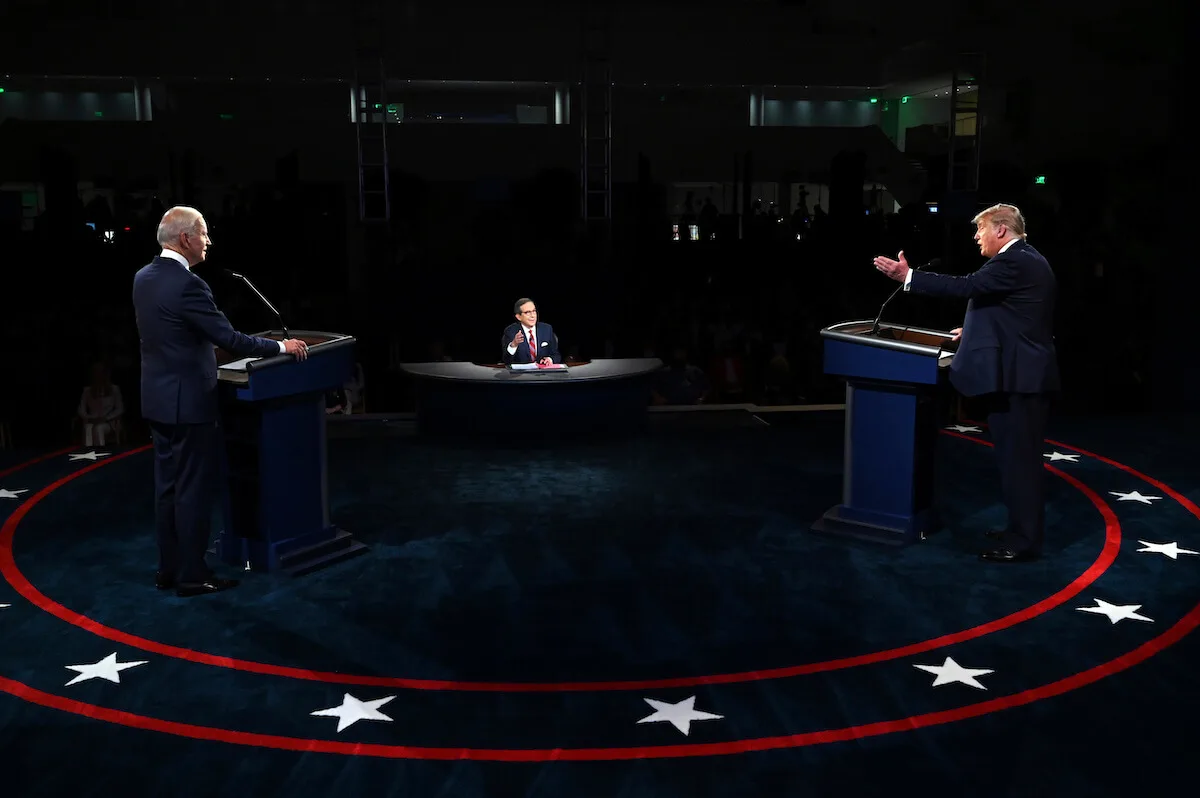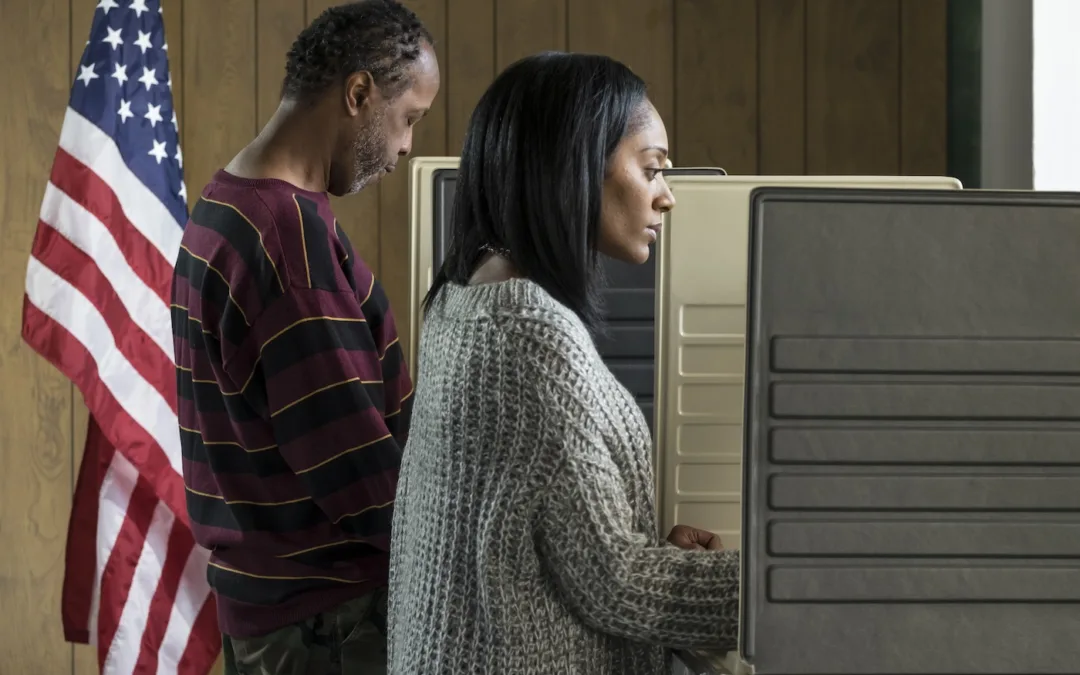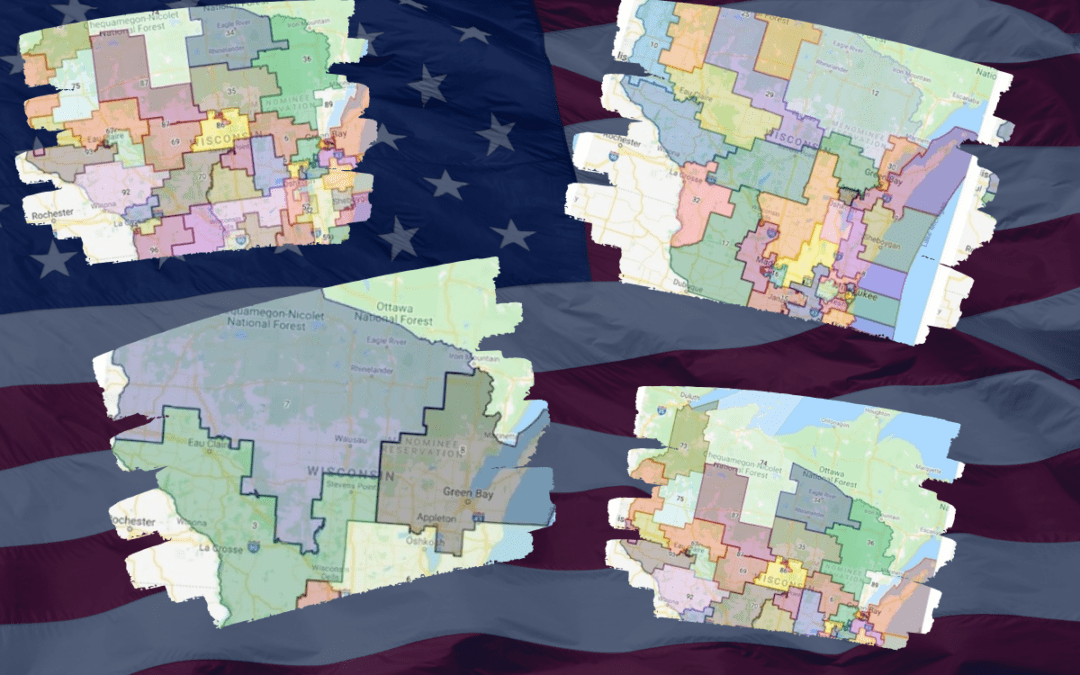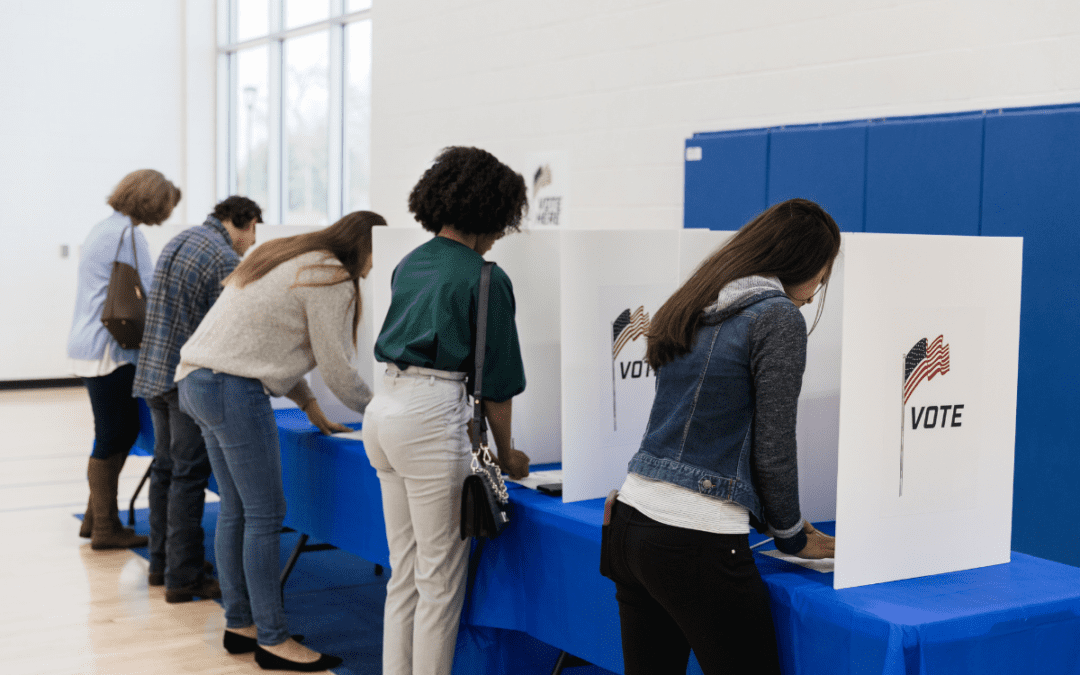
#image_title
#image_title
Voters, poll workers, and law enforcement have various tools to prevent voter intimidation.
After President Donald Trump called for his supporters to “go into the polls and watch very carefully” on Election Day, concerns of voter intimidation and violence spread quickly as the Trump campaign launched an effort to recruit an “army” of poll watchers.
Trump has frequently claimed the presidential election will be rigged, especially if he loses, and his request for his supporters to essentially guard the polls was just his latest affront to the integrity of the Nov. 3 election. Despite those concerns, two voting-rights experts told UpNorthNews that voters should be aware, but not afraid, of Trump’s call.
“Voters should be vigilant but they should not be fearful,” said Eliza Sweren-Becker, counsel for the Democracy Program at New York University Law School’s Brennan Center for Justice.
“The rhetoric coming from the President and other people around watches at the polls, and galvanizing the ‘army for Trump’ is designed to scare people,” Sweren-Becker said. “The rhetoric itself is intended to act as voter suppression.”
It’s important to remember the vast majority of voters will not encounter poll watchers, and the majority of observers will be benign, Sweren-Becker said.
Reid Magney, spokesman for the Wisconsin Elections Commission, echoed that while people should be aware of potential voter intimidation, it is exceedingly scarce in Wisconsin.
“It’s a really rare occurrence,” Magney said. “It really is. I can probably count on one hand the number of issues we’ve had over the 10-plus years that I’ve been doing this.”
Poll watching is perfectly legal in Wisconsin, and anyone can do it without training, but there are strict rules poll watchers must follow if they wish to remain as an observer. Anyone except a candidate whose name is on the ballot can observe the electoral process at any polling place under Wisconsin law, according to guidance from the Wisconsin Elections Commission published on Tuesday.
Observers are allowed to watch the electoral process, but may not interact with voters unless the voter specifically asks an observer for help, nor may they make phone calls; wear apparel in support of or speak about a candidate, party or cause; or disrupt the proceedings. Observers can also view the polling location’s list of registered voters as long as there are not any voters in line; however, observers cannot handle any official documents.
Observers are also prohibited from taking photos or videos inside polling places because “those actions are inherently intimidating to voters,” according to the Elections Commission. An exception is made for news media employees, as long as they do not photograph or record a voter’s filled-out ballot.
Perhaps an observer’s most significant power is the ability to challenge a voter’s eligibility. An observer may alert an election official—but not directly engage with the voter—if they believe a voter is ineligible for reasons such as age, residency, citizenship status, and felony status. To view the full list of potential challenges, visit the Elections Commission website.
However, an accusation cannot be made lightly, as polling place officials will then take a statement made under oath from the observer explaining why they believe a voter is ineligible. The observer can withdraw their challenge after the voter responds.
“Challenges cannot be brought for reasons outside of the ones listed above and observers should not be permitted to make frivolous challenges designed to interfere with the orderly processing of voters or ballots,” according to the Elections Commission.
Chief poll workers have the power to remove observers who violate any of the rules, and are also encouraged by the WEC to call law enforcement to remove if the observer won’t leave.
Wisconsin does not have any laws prohibiting people from bringing guns into polling places, according to Magney. However, guns may still be disallowed at certain polling places, such as schools, where it is already illegal to carry firearms.
Still, there remains the possibility that armed individuals or groups may appear to intimidate voters outside polling places and past the 100-foot anti-electioneering radius, especially given Trump’s call for a poll-watching army.
“It is important to call out Trump’s comments for what they are: not just calls for illegal action but also attempts at voter suppression. Voters should not be intimidated,” reads an Oct. 6 report from the Brennan Center.
While some voters may be scared off by Trump’s rhetoric, others may feel emboldened, said Khary Penebaker, a Democratic National Committee representative, board member of Everytown for Gun Safety, and former Democratic candidate in Wisconsin’s 5th Congressional District.
“It’s an act of intimidation, but it’s also an act of inspiration because folks need to clearly vote this man out,” Penebaker said. “Because he is the antithesis to what a free and open democracy should be.”
To prevent armed people from disenfranchising voters, elected officials must be strong in their messaging before the election, said Jonathan Backer, counsel for Georgetown University Law School’s Institute for Constitutional Advocacy and Protection (ICAP).
“We’re just concerned that there could be militia activity at the polls and voter intimidation flowing from that,” said Backer, a Kenosha native.
Private militias are illegal in all 50 states, according to ICAP, and Backer said local law enforcement and elected officials must make that clear.
“We’ve seen, unfortunately, in Wisconsin the negative consequences that flow when elected officials don’t speak out and talk about the legal tools that are at their disposal to put a stop to paramilitary activity,” Backer said, in reference to how Kenosha law enforcement appeared to let militia members operate without consequence or scrutiny during protests over the Aug. 23 police shooting of Jacob Blake.
Officers were seen thanking Kenosha militia members shortly before one shot and killed two protesters, and it wasn’t until the day after the shooting that officials in Kenosha spoke against militia presence. However, Backer said, US Supreme Court case law makes it clear that private militias can only operate legally if activated by state or federal officials.
When officials do not proactively speak against militia, “it really emboldens these groups to come out and engage in unlawful activity, be it at the polls or anywhere else,” Backer said.
ICAP created fact sheets for all 50 states on laws regarding militia, and also a fact sheet on voter intimidation. Backer said those fact sheets were created to both educate elected officials and urge them to discourage militia activity; doing so, Backer said, would reassure voters “we won’t see a repeat of what happened in Kenosha.”
In addition to contacting poll workers or local law enforcement, both Backer and Sweren-Becker said voters can report intimidation on Election Day by calling the nonpartisan Election Protection hotline at 866-OUR-VOTE (866-687-8683).
The Wisconsin Elections Commission plans to release guidance for local law enforcement and elections officials regarding voter intimidation and armed individuals at polling places sometime next week, Magney said.
Politics

New Biden rule protects privacy of women seeking abortions
Under the new rules, state officials and law enforcement cannot obtain medical records related to lawful reproductive health care with the goal of...

Biden marks Earth Day by announcing $7 billion in solar grants
The Biden administration on Monday announced the recipients of its Solar For All Program, a $7 billion climate program that aims to lower energy...
Local News

Stop and smell these native Wisconsin flowers this Earth Day
Spring has sprung — and here in Wisconsin, the signs are everywhere! From warmer weather and longer days to birds returning to your backyard trees....

Your guide to the 2024 Blue Ox Music Festival in Eau Claire
Eau Claire and art go hand in hand. The city is home to a multitude of sculptures, murals, and music events — including several annual showcases,...




